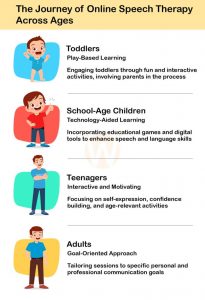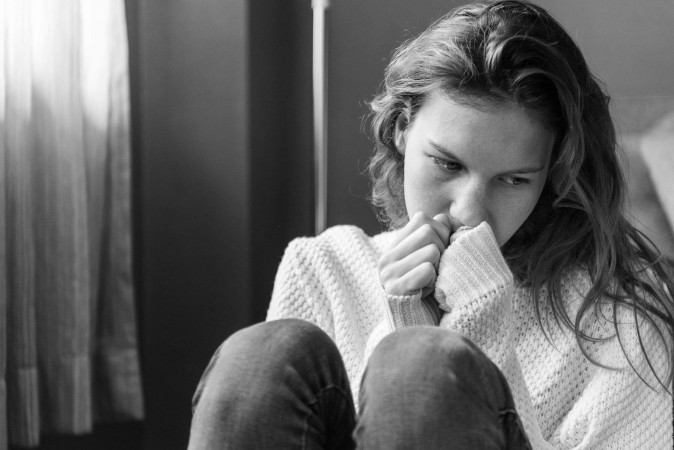Nature of Grief | How does grief end?
By Prapoorna M
Last Updated: November 27, 2021
Grief is an internal feeling that an individual experiences in reaction to a loss. Bereavement is the state of experiencing that loss. People often suffer emotional pain when they lose anything that is very important to them (for example, a job, a friendship or other relationship, one’s sense of safety, a home). But grief is usually experienced at the loss of a loved one through death.
The pain of such a loss can be over whelming. All the kinds of difficult emotions are experienced during this period. While the loss could put you to shock and disbelief, you might also feel anger on some invisible that grabbed your loved one away from you and that rage could turn into some guilt that you couldn’t save them and then would eventually lead to profound sadness. This is a flow of natural emotions that a person goes through when an unexpected loss of loved one or pet or something occurs.

Causes of Grief
There can be many causes of grief and the basic emotion that runs internally is the emotional attachment that is lost and the realization that their physical presence will be no more felt. The common causes of grief are the following.
- Death of a loved person
- Death of a pet
- Divorce
- Breakup in a Relationship
- A miscarriage
- Chronic illness
- Loved one’s terminal illness
- Loss of a dream job
- Loss of property
- Loss of financial stability
- Retirement
- Loss of safety after a trauma
- Loss of friendship
- Losing home permanently
- Selling the family home
- Crushed dreams
All such mishaps can cause grief, which could be mild, moderate and severe. If someone is unable to come out of that over whelming grief, it is always suggestible to go for an expert help. Neglecting the severe grief which is getting chronic could lead to suicide ideation in the individuals. Seeking psychological counselling helps the person to cope with the grief and to get into the normal life.
Kinds of Grief
Though we know that grief can be caused according to the emotional state of the person, there are kinds of grief on how the grief conquers a person. The two main types are Acute and Chronic grief.
- Acute Grief: The grief that lasts for a shorter period of time
- Chronic Grief: The grief that lasts for a longer period of time
- Complicated grief
Although not a formal medical diagnosis, prolonged or complicated grief refers to a reaction to loss that lasts more than one year. This is the chronic grief in which the symptoms do not dissipate over time. This is a strong reaction of the grief that builds up. This also emphasizes the density of grief a person experiences and the amount of time the person carries the load of grief. The complicated grief affects sufferer in many ways.
- It affects the sufferer’s close relationships
- Disrupts his or her beliefs
- It tends to result in the bereaved experiences
- It continuous with longing for their deceased loved one.
About 15% of bereaved individuals usually suffer from complicated grief. Studies say that about one-third of people who are undergoing mental-health treatments have been found to suffer from this extended grief reaction.
Anticipatory grief
Anticipatory grief is defined as the feelings loved ones have in reaction to knowing that someone they care about is terminally ill. It is caused as they prepare themselves since this allows time for loved ones to say goodbye to the terminally ill individual, begin to settle affairs, and plan for the funeral or other rituals on behalf of the person who is dying. It occurs before the death of the afflicted loved one and can be an important part of the grieving process.
Delayed Grief
The delayed grief is felt after a certain long time after the occurrence of the loss. This grief occurs when a person does not begin to feel the symptoms of grief until certain time period has passed. In many cases, the delayed grief is caused when the person consciously or subconsciously avoids believing the occurrence of loss.
Inhibited Grief
Inhibited grief happens to occur when a person keeps the grief symptoms only to himself or herself. When someone doesn’t express their grief due to various personal or behavioral reasons, this intensity of grief that fills the mind, takes some other form. Such grief feelings that are kept shut in mind will manifest in the body by developing some physical complaints in the body. This grief is usually not known until those physical symptoms come up bothering the person.
Mourning
Mourning is the outward expression of that loss. It usually involves culturally determined rituals that help mourners make sense of the end of their loved one’s life and give structure to what can feel like a very confusing time. The internal pain of grief that one goes through is a universal phenomenon.
But the way people mourn is influenced by their personal, familial, cultural, religious, and societal beliefs, and customs. Everything from how families prepare themselves and their loved ones for death, and understand and react to the passing to the practices for preserving memories of the deceased, their funeral or memorial, burial, cremation, or other ways of handling the remains of the deceased is influenced by internal and external factors.

Mourning period
The combination of personal, cultural, religious, familial and societal factors determines the formal length of mourning period. The bereavement leave people take from work is also determined by these factors. The differing mourning customs from one society to the other also affect how the affected individuals seek comfort and support from others as well as the appropriate ways for their friends and family to express sympathy during this time.
For example, the aggrieved individual may talk about their loss with friends, family members and coworkers depending on the varied cultures, on how much or how little they are allowed to. Such things may also determine whether or not participating in a bereavement support group or psychotherapy is acceptable.
The Effects of losing a loved one
The grief reaction can have significant negative effects. Studies say that about 40% of bereaved people will suffer from some form of anxiety disorder in the first year after the death of a loved one. This could continue for long and affect them in all walks of life. Also, there can be up to a 70% increase in death risk of the surviving spouse within the first six months after the death of his or her partner.
There are many cases that stand as examples of such deaths. These people can die of heartaches due to chronic grief or may end up committing suicides out of loneliness. Celebrity suicides also provide such examples.
The psychologists have given preference to this cause and place it as one of the top reasons of the list of the most serious stresses to endure. The questionnaires that assess how much stress a person is experiencing shows the preference given to this reason.
Loss of a Pet
The grief that results from the loss of a family member is equivalent to the grief that people experience during the loss of a pet. It is just because of the love they have towards it and how they treat it, sometimes like more than a family member. As pets are the lovable creatures and they just show pure love and expect nothing in return, such loss is almost irrecoverable.
It is really hard for a pet lover to come out of that grief. Even after years of loss, they weep in their remembrances. When the circumstances arise that they have to make a decision to euthanize (painlessly put to death) the family pet, it becomes the hardest decision to make.
Usually veterinarians advice to take this decision when the pet suffers as a result of their age, specific illness, and/or general declining health, that can add stress to the bereavement process by leaving family members feeling guilty. But it should be understood that they understand that they spared their beloved pet’s unnecessary suffering. Having a talk with an expert helps you to cope with the facts and come out of that melancholic period as early as possible.
Grief Triggers
In addition to grief as an initial reaction to loss, the process can be aggravated by events that remind the bereaved individual of their loved one or the circumstances surrounding their loss. Such events are often referred to as grief triggers. The examples of such grief triggers can be like the following.
- The beginning of the school year may cause the parent who has lost a child (or a child who has lost a parent) to feel distraught.
- A shared song, television show, or activity can cause anguish by reminding the widower of the wife he lost.
- A simple hide-and-seek play that a neighboring boy plays, can remind the child of the grandparent who is no longer living.
- The sight of a young couple cuddling each other, could remind a lady of her loving husband who died in a recent accident.
- Watching another child play with a pet may reduce a child whose pet has died to tears.
Such unavoidable incidents are likely to trigger grief in the sufferers. Relating such incidents with the past makes the sufferer to suffer more.
If the bereavement prolongs, it is always better to take an expert help to help yourselves out of that mental trauma. Book an appointment today.
Book your Free Consultation Today
Parent/Caregiver Info:
Client’s Details:
* Error Message









